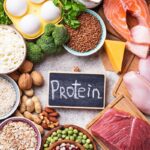Natural Ways to Reduce Inflammation in the Body

Introduction – What Is Inflammation? Inflammation is the body’s immune response to injury or invading pathogens. In the short term (acute inflammation), it helps heal wounds or fight infections – symptoms like redness, warmth, swelling and pain indicate this healing process. However, chronic low-level inflammation (when the immune response stays “on” without a real threat) is harmful. Research links chronic inflammation to many diseases, including heart disease, diabetes, cancer, Alzheimer’s, arthritis, and more. In effect, inflammation is both good (for healing) and bad (when uncontrolled). The goal of an anti-inflammatory lifestyle is to support the helpful aspects of inflammation while preventing it from becoming a persistent, disease-promoting state.
Anti-Inflammatory Foods
A diet rich in plant-based and whole foods can help lower inflammation. Many fruits, vegetables, whole grains, healthy oils, nuts and spices contain antioxidants and phytochemicals (like polyphenols) that neutralize inflammatory molecules. Key anti-inflammatory foods include:
-
Berries (blueberries, strawberries, raspberries, etc.) – These fruits are high in vitamins and compounds called anthocyanins that have strong antioxidant and anti-inflammatory effects. Studies show that people who ate berries regularly had lower markers of inflammation.
-
Fatty fish (salmon, mackerel, sardines, anchovies) – These are rich in omega-3 fatty acids (EPA and DHA), which research shows can reduce inflammatory markers like C-reactive protein (CRP) and cytokines. (Omega-3s may also help with heart and joint health.)
-
Green leafy vegetables (spinach, kale, collards) and colorful veggies (tomatoes, peppers, broccoli, carrots) – Packed with vitamins, minerals and polyphenols, these provide a variety of antioxidants that help shut down inflammation. Harvard experts note that leafy greens and tomatoes are staples of an anti-inflammatory diet.
-
Olive oil – Extra-virgin olive oil contains a polyphenol called oleocanthal that acts like a natural anti-inflammatory (similar to low-dose ibuprofen). Using olive oil instead of butter or margarine can help reduce inflammatory signals.
-
Nuts and seeds (almonds, walnuts, flaxseeds, chia seeds) – These contain healthy unsaturated fats, fiber and polyphenols. Studies have linked regular nut consumption to lower inflammation and reduced risk of heart disease and diabetes. Walnuts and flaxseeds also add plant-based omega-3s.
-
Fruits (cherries, grapes, oranges, apples, pomegranates) – Many fruits contain vitamin C and flavonoids (polyphenols) that act as antioxidants. For example, cherries have been shown to reduce joint inflammation, and grapes/grapes skins have resveratrol.
-
Green tea (and other teas) – Green tea is rich in epigallocatechin gallate (EGCG), a polyphenol with antioxidant and anti-inflammatory properties. Studies confirm that regular tea drinkers often have lower inflammation.
-
Herbs and spices (turmeric, ginger, garlic, cinnamon, cayenne, etc.) – Certain spices are potent anti-inflammatories. Turmeric contains curcumin, a compound well-known for its strong anti-inflammatory and antioxidant effects. Ginger contains gingerol, a powerful anti-inflammatory phenolic compound. (Cooking with these spices, or adding turmeric ginger tea, can help reduce inflammation over time.)
Together, these foods supply a spectrum of nutrients that calm the immune system. As Harvard experts note, diets high in fruits, vegetables, nuts, whole grains and fish (for example, a Mediterranean diet) are rich in such anti-inflammatory foods.
Foods that Promote (and Worsen) Inflammation
Just as certain foods fight inflammation, others tend to fuel it. Harvard Health and medical authorities advise limiting or avoiding:
-
Refined carbohydrates (white bread, pastries, crackers) – These cause blood sugar spikes and have been linked to higher inflammation markers.
-
Sugary foods and drinks (soda, candy, desserts) – Excess sugar triggers inflammatory pathways. High sugar intake is associated with higher CRP and other markers of chronic inflammation.
-
Fried and processed foods (fast-food fries, chips, packaged snacks) – These often contain trans fats and oxidized fats that promote inflammation. They also lack antioxidants.
-
Red and processed meats (burgers, hot dogs, sausage) – These are high in saturated fat and certain compounds (like advanced glycation end-products when cooked at high heat) that can raise inflammation. Harvard experts specifically list red/processed meat as pro-inflammatory.
-
Trans fats and hydrogenated oils (margarine, shortening, many packaged bakery goods) – Trans fats have no health benefit and actively increase inflammation.
-
Excess alcohol – Heavy drinking can irritate body tissues and dysregulate immune function, contributing to inflammation. (Moderate amounts may be less harmful, but overindulgence is best avoided.)
In short, foods high in added sugars, refined grains, unhealthy fats or artificial ingredients tend to raise inflammatory signals in the body. Harvard researchers note that these same foods are associated with obesity, diabetes and heart disease – conditions underpinned by inflammation. Reducing or eliminating inflammatory trigger foods helps “turn off” chronic inflammation.
Lifestyle Habits That Reduce Inflammation
-
Regular exercise. Physical activity isn’t just for weight control – it directly lowers inflammation. Even moderate exercise (such as brisk walking, cycling, swimming) 3–5 times per week boosts circulation and stimulates anti-inflammatory cells. Studies show that regular exercise mobilizes regulatory T-cells (part of the immune system) that help counteract inflammation. Aim for at least 150 minutes of moderate exercise per week (about 30 minutes most days). Exercise also improves insulin sensitivity and heart health, further reducing inflammatory risk.
-
Adequate sleep. Sleep has a profound effect on inflammation. Chronic sleep deprivation is linked to elevated inflammatory markers like interleukin-6 (IL-6) and C-reactive protein. When you sleep poorly, the body’s stress hormones rise and the blood vessels don’t get their normal rest period, which can trigger inflammation. Conversely, getting 7–9 hours of quality sleep nightly helps regulate the immune system and keep inflammation in check. Good sleep hygiene (regular schedule, cool dark room, no screens before bed) is an important anti-inflammatory habit.
-
Stress management. Chronic stress causes a constant “fight or flight” response that keeps the immune system on high alert. Harvard experts note that ongoing stress “can become constant and cause ongoing harm, including chronic inflammation”. In other words, your body may react to long-term stress as if it’s continuously under attack. To counter this, practice stress-reduction techniques: meditation, deep-breathing exercises, yoga, tai chi, journaling, or simply taking mindful breaks. Even short relaxation exercises (10 deep breaths, guided imagery or stretching) can activate the body’s “relaxation response” to lower stress hormones. Social support and enjoyable hobbies also buffer stress. Together, these habits help prevent stress from turning into chronic inflammation.
-
Maintain a healthy weight. Excess body fat, especially around the waist, produces inflammatory substances (like cytokines) that keep the body in a pro-inflammatory state. Harvard reports that weight gain itself is “a risk factor for inflammation”. Achieving a healthy weight through balanced eating and exercise therefore reduces fat-induced inflammation. Even modest weight loss (if overweight) can lower CRP and other markers.
-
Avoid tobacco and limit alcohol. Smoking is a strong trigger of inflammation throughout the body; quitting smoking has rapid anti-inflammatory benefits. Excessive alcohol irritates gut and liver tissues and promotes inflammation, so drink moderately (or not at all) as part of an anti-inflammatory routine.
By combining these habits – good diet, movement, sleep and stress management – you create a lifestyle that naturally keeps inflammation low. Harvard specialists emphasize that an overall healthy pattern (for example, Mediterranean-style eating plus exercise and sleep) is the most powerful way to reduce chronic inflammation.
Natural Supplements with Anti-Inflammatory Properties
Some natural supplements may help dial down inflammation, though they should complement (not replace) a healthy diet and lifestyle. Current research highlights a few well-known examples:
-
Turmeric (Curcumin): Turmeric is a yellow spice whose active ingredient, curcumin, has potent anti-inflammatory and antioxidant effects. Laboratory and clinical studies show curcumin can reduce levels of inflammatory mediators in the body. A 2020 review found curcumin was associated with anti-inflammatory (and other) health benefits. For example, curcumin supplements have been shown to help relieve joint pain and stiffness in osteoarthritis and rheumatoid arthritis (similar to some NSAID medications). (Many turmeric supplements now include black pepper extract to improve absorption.) The Arthritis Foundation, for instance, suggests about 500 mg of curcumin extract twice daily for arthritis symptom relief. Turmeric is generally safe, but high doses can cause stomach upset or interact with some medications.
-
Omega-3 fatty acids (Fish Oil or Algal Oil): As noted above, omega-3s from fish are strongly anti-inflammatory. Fish oil capsules (or algal oil for vegetarians) provide concentrated EPA/DHA. Meta-analyses of clinical trials show that omega-3 supplementation significantly lowers inflammatory biomarkers like CRP, TNF-α, and IL-6 in people with metabolic or cardiovascular conditions. In other words, studies find that higher omega-3 intake is associated with reduced chronic inflammation and cardiovascular risk. Typical supplemental doses range from 1–3 grams of combined EPA/DHA per day (after consulting a doctor).
-
Ginger: Ginger root contains gingerol and other compounds with anti-inflammatory effects. Research (including human studies) supports ginger’s role in combating inflammation. For example, a systematic review found ginger effective in reducing inflammation-related symptoms across several conditions. Traditional uses (and some trials) show ginger may help ease arthritis pain and inflammatory stomach issues. Ginger is generally safe in food amounts; supplements or teas can be used, but high doses may affect blood clotting in sensitive individuals.
-
Other supplements: Green tea extract (EGCG), bromelain (from pineapple), boswellia (Indian frankincense), and some vitamins (D, C) also have anti-inflammatory properties, but evidence varies. If you consider supplements, it’s best to discuss them with a healthcare provider. Overall, supplements can be helpful for targeted needs, but focusing on an anti-inflammatory diet and lifestyle remains most important.
Tips for Building an Anti-Inflammatory Routine
-
Emphasize whole, plant-based foods: Build meals around vegetables, fruits, legumes and whole grains. Aim for a “rainbow” of colors on your plate to cover a range of antioxidants. Include healthy fats (olive oil, nuts, avocados) and at least two servings of fatty fish per week.
-
Use herbs and spices liberally: Swap salt and fat for flavor by seasoning with turmeric, ginger, garlic, cinnamon, or cayenne. These spices not only add taste but also anti-inflammatory compounds. Even adding a sprinkle of turmeric and black pepper to soups, rice or smoothies boosts anti-inflammatory power.
-
Cut back on inflammatory foods: Minimize sugary drinks, processed snacks, fried foods, and processed meats. Read labels and try to avoid trans fats and high-fructose corn syrup. When choosing snacks, pick fruit, nuts, yogurt or hummus over chips or cookies.
-
Stay physically active: Find activities you enjoy so you move consistently. Aim for moderate exercise (like brisk walking, biking, swimming, or dancing) most days. Exercise is a natural anti-inflammatory – it can “turn on” inflammation-resolving immune cells and reduce stress. Even short 10-minute walks or stretching breaks during the day can help.
-
Get quality sleep: Keep a consistent sleep schedule and create a restful environment (cool, dark, quiet). Establish a relaxing bedtime routine (reading, gentle yoga, warm bath). Good sleep is when your body repairs itself; making it a priority can noticeably lower daily inflammation.
-
Manage stress daily: Dedicate time each day to stress relief. Practice deep breathing or meditation (just 5–10 minutes can help reset your nervous system). Engage in activities that relax you (walking in nature, listening to music, socializing). As Harvard experts note, combining habits like sleep, plant-based diet, exercise and meditation boosts resilience against stress-induced inflammation.
-
Maintain a healthy weight and habits: If you smoke, seek help to quit (smoking triggers inflammation). Drink alcohol in moderation if at all. Stay hydrated with water or herbal teas (green or ginger tea, for example).
By making these anti-inflammatory choices habitual, you create a daily routine that supports your body’s health. Remember that no single “magic” food or exercise will cure inflammation – rather, it’s the consistent pattern of healthy eating, movement, rest and stress management that makes a real difference. Over time, this balanced approach can lower inflammation and help protect against many chronic diseases.






